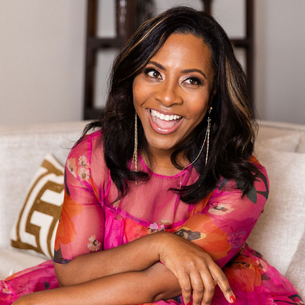I am the first to admit that writing about controversial topics in children’s books can be a little scary. In 2017, I self-published my first book- - a children’s picture book. Not a happy, fluffy unicorn with rainbows type of book; a book about a very real and serious topic. One of those topics you really don’t want to have with your kids, but you know it’s your responsibility to do so. My book, “Momma, Did You Hear the News?,” helps parents have the difficult conversation known in the African-American community as “the talk.” It helps kids remember what to do if approached by law enforcement.
While I did not write the book to stir up controversy, I immediately saw strong opinions surface in support of, as well as opposed to my story. Now, five years later I still have a steady stream of sales reminding me that there continues to be a need for the title, but many comments and reviews on social media remind me that many still do not agree with my sentiment.
As an author, you must remember that everyone will not love how you express your thoughts. For those of you contemplating writing on a controversial topic, below are some tips that I still consider when writing about issues that may ruffle a few feathers.
Know your "WHY"
Get to the core of the reason you feel this story needs to be shared with the world. Let that guide you throughout the entire process. Ask yourself, “What do I want the reader to gain from this experience?”
In the African-American community, “the talk” has been passed down through multiple generations and it seems likely that it will continue for more. I didn’t write the book to cause animosity towards law enforcement. It is not an anti-police book. It is, however, anti-police brutality. My intentions were clear to me. I knew that my husband and I were not the only parents having this difficult conversation with our kids. I wanted to help guide other parents as they prepared to do the same. I wanted to be a resource for families who weren’t familiar with this topic and give them a glimpse of what other families may be experiencing. My “WHY” is to educate and enlighten.
Do not expect to have a fan club
As an author we want others to appreciate and value our work, but no matter how great you feel your work is, there will be others who believe it is absolute garbage and that’s ok. Be prepared for those opposing views in reviews and on social media. As a new author, I had no idea what to expect and how my book would be received. I quickly learned that many parents across the country were extremely interested, and many other families were offended. I have received 1-star reviews for being pro-law enforcement and I also have received a 1-star reviews for being anti-law enforcement. Yes, all for the same book.
Do your research on the opposite view
This information can be helpful while writing your text. If you can, try to incorporate another perspective (even if you disagree). This is a tricky one and depending on your topic, it may not be possible. I believe that showing this other side allows readers to see that you do at least acknowledge another point of view. I wanted to include a spread that showed law enforcement in a good and positive light. While this isn’t necessarily an opposing view, there are many of my supporters who did not like me showing a “good side” of law enforcement. It was never my intent to make children believe that all police officers are bad. I think readers who are initially opposed to the book become more willing to reading all my text with a more open mind as well.
Know your audience
This is especially true when scheduling appearances, readings, etc. Prepare yourself for questions with opposing views. In my second book, “Daddy, Did You Hear the News?,” I help parents talk to their children about bullying. I pulled many “real life” situations that I encountered as a school social worker. I used scenarios where children are mocked for having parents of different races as well as for having parents of the same sex. These are real life scenarios. I am reminded of this when I do readings at schools and scan the room to see the eyes light up. I know this is their reality. And while I receive many positive responses from schools after readings, I have also gotten negative feedback regarding my content. I have made initial calls where administrators are excited and enthusiastic about scheduling me; however, once they receive the book and review the content, their enthusiasm may wane, and appearances have been cancelled. Stand firm on your opinion.
Write with good intentions
Rather than writing to tear down another perspective, write to educate others on why you feel so strongly on your side of the topic. You already know it’s a controversial topic but your intentions to educate in a positive way should be pure. Even if some children do not see themselves, they may gain insight into the world of a classmate. Dr. Rudine Sims Bishop (the “mother” of multicultural children’s literature) said that books are like mirrors, windows, and sliding glass doors. Mirrors are a way for children to see themselves reflected in literature. Windows are a way for children to see the lives of others and sliding glass doors are a way for children to see themselves as able to transverse between groups and worlds.
I still remember how warm and fuzzy I felt the first time I saw the little brown girl in the book, “Corduroy” by Don Freeman. To know that my books can give a young child that amazing feeling of being seen inspires me to unapologetically keep writing.
Be true to yourself…authenticity is KEY
With both of my books, I wrote from my personal views and experiences as a mother and a social worker. So, while my perspective will be different than those who are not parents or may not work with kids, it is my truth. I also understand that every mother and every social worker may not agree with me and that’s ok! At the end of the day, if you are authentic, you will be proud of your work because it comes from a genuine place. That realness will come through when you do interviews, readings, and simple random conversations. I hope these tips can help you as you consider writing on your controversial topic. Don’t shy away from it. Your voice needs to be heard.












